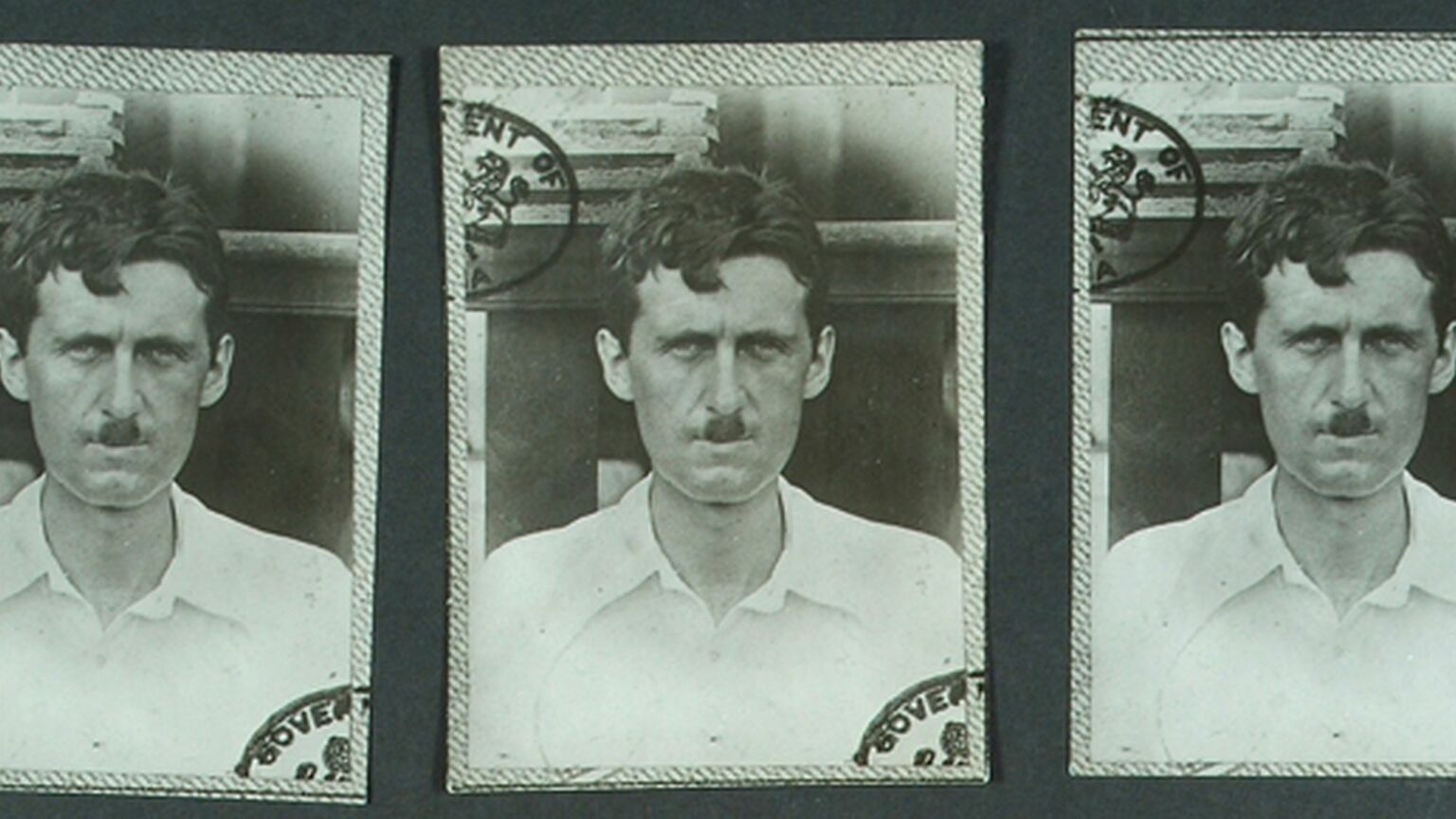The enigma of George Orwell
DJ Taylor’s Orwell: The New Life reveals the many contradictions at the heart of his life and politics.

It would be an understatement to say that George Orwell was obsessed with class. His best-known works were devoted to charting class divisions, customs and fractures. This is most conspicuous in The Road to Wigan Pier and Homage to Catalonia, which reported on the fissure and bitter antagonism between the peasants and ultra-left workers, who adhered to a brand of anarcho-communism, and conservative, middle-class types, who allied themselves to Moscow. It’s there in Animal Farm, too. In that cautionary tale, the theme was the exploitation and betrayal of a naive, ostensible ‘proletariat’ by a corruptible and corrupt ‘pig’ class, which grew more to resemble its erstwhile masters with each passing moment.
Orwell often wrote of the cleavage between well-to-do socialists and the working class in Britain. He castigated the shallowness, aloofness and sneering snobbery of this country’s left-wing intellectuals. In his 1941 essay, The Lion and the Unicorn, he famously wrote that the ‘really important fact about so many of the English intelligentsia’ was ‘their severance from the common culture of the country’.
In a passage that has become cliché (but bears repeating today as we are once more witnessing a spasm of far-left, middle-class anti-patriotism), Orwell said: ‘They take their cookery from Paris and their opinions from Moscow. In the general patriotism of the country they form a sort of island of dissident thought.’
By contrast, in a 1939 essay, he wrote that: ‘In moral outlook no one could be more “bourgeois” than the English working classes. The ordinary people in the Western countries have never entered, mentally, into the world of “realism” and power politics.’
Orwell’s idiosyncratic brand of patriotic socialism, and the observations that informed it, baffled people. It is no wonder so many of his contemporaries on the left accused him of heresy and treachery. After all, his two great dystopian attacks on totalitarianism became bibles for conservatives. But Orwell’s preoccupation with class, as DJ Taylor elaborates in Orwell: The New Life, stemmed from his own ambiguous background. Orwell found it difficult to define himself convincingly or believably.
Orwell could see beyond the rigidities of class boundaries because he didn’t fit in – neither within the parameters of class, nor within the parameters of nationhood. Eric Arthur Blair, as Orwell was baptised, was born in India. He would later return to Asia to serve as an imperial policeman in Burma. He described himself as ‘lower-upper middle class’ and as a boy he won a scholarship to Eton – yet here he was a loner and an outsider.
It was this sense of being an outsider that led Orwell to sympathise with the working class. Yet raised in a background steeped in the British Empire, he also bore the burden of privileged guilt.
He was a bundle of internal contradictions, something that resulted in much self-mythologising. Taylor writes that he came to assemble ‘selected materials from his schooldays to fashion an image that chimes with the kind of person he imagined himself to be, that his solitariness and the sense of being permanently oppressed by powerful exterior forces he could do nothing to rest was an integral part of the way he saw the world’.
It was fitting that Orwell is remembered for his two names, one given and one assumed, and for a Janus-faced persona, as the reading public came to witness in Down and Out in Paris and London. Here, says Taylor, ‘there were two Orwells in evidence… One was an intrepid voyager among the subterraneans, to whom scraps of social detail attached themselves like insects to flypaper. The other was an upper-middle-class man with a conscience.’
The dubious authenticity of Orwell’s self-image is a leitmotif of DJ Taylor’s fine and engaging biography, Orwell: The New Life, a reworking and updating of his 2003 work, Orwell: The Life. And if Orwell the public persona emerges from this work a figure mired in ambivalence, Orwell the private person merits less nuance. He was a selfish libertine of unrestrained sexual appetite who treated his first wife, Eileen, abominably. He even left her unaccredited for essentially co-authoring Animal Farm. He treated her as a domestic servant and private secretary, until she died on the operating table in 1945. Her husband wasn’t even there, having accepted an offer to report on bomb damage in German towns.
Even Orwell’s long-established reputation as a writer with a fine eye for detail of everyday life comes under suspicion in The New Life, as Taylor reminds us of his weakness for ‘grotesque generalisations’ such as ‘all tobacconists are fascists’.
That weakness for flippancy is one of the arresting asides to the biography. As is his taste for detective novels. So too is the discovery, for me at least, that Orwell had a near-obsession for the works of James Joyce, whose prose style must surely represent the antithesis of Orwell’s famed stylistic Calvinism. As Orwell wrote in a letter in 1933: ‘I have read nothing except over and over again my dear Ulysses – my greatest discovery since I discovered Villon.’
If we are left none the wiser as of how to encapsulate or pigeon-hole George Orwell, this is probably just. He will always remain an enigma. This is why he was and remains problematic when it comes to placing him on a left-right spectrum. Orwell the misfit was at liberty to transcend it. His lack of tribal affiliation to the traditional left gave him the freedom to denounce Soviet Communism after his experience in Catalonia. And the fruits of his disillusionment ultimately came to result in two of the most famous dystopian novels of the 20th century.
If George Orwell was a rootless semi-fantasist, his inherent deracination was his liberation. He saw neither left nor right, but rather the world divided between oppressors and the oppressed, between those who told the truth and those who lied in their pursuit of power. He warned us not only about the menace of the power-hungry, but also of ‘an age in which freedom of thought will be at first a deadly sin and later on a meaningless abstraction’. He knew all too well that those who wanted to reshape reality would do so by re-shaping our language. He would well recognise today’s cancel culture.
His world was divided between those who pursued and cherished liberty, and those who sought to quash freedom. As he put it concisely in a letter to Malcolm Muggeridge in December 1948: ‘I do earnestly think you are wrong. The real division is not between conservatives and revolutionaries, but between authoritarians and libertarians.’
This bears repeating now more than ever.
Patrick West is a spiked columnist. His latest book, Get Over Yourself: Nietzsche For Our Times, is published by Societas.
Orwell: The New Life, by DJ Taylor, is published by Constable. Order it here.
Picture by: Wikimedia Commons.
To enquire about republishing spiked’s content, a right to reply or to request a correction, please contact the managing editor, Viv Regan.










Comments
Want to join the conversation?
Only spiked supporters and patrons, who donate regularly to us, can comment on our articles.